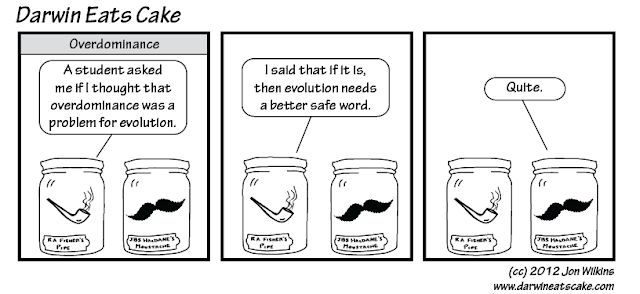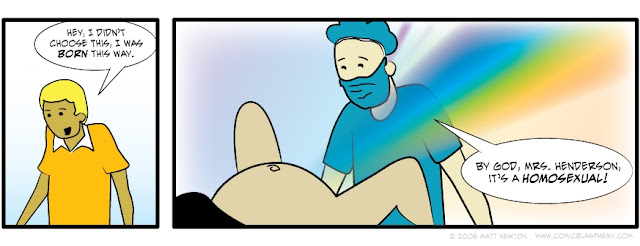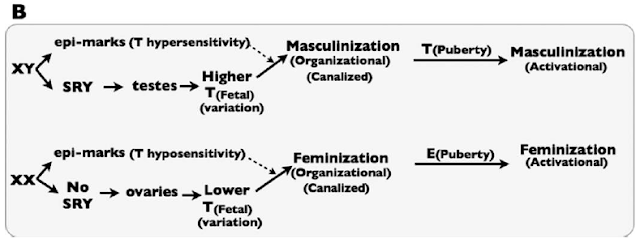So, welcome back for the third installment of me dispensing advice that no one asked for. Previous advice included two guides, the first to help you decide whether or not you should go to graduate school, and the second to help you to pick a program (and advisor).
Now, let’s fast forward to the point where you’re in grad school, and you’re thinking to yourself, “I wonder what advice that nice young Jon Wilkins would have to help me get the most out of grad school, now that I’m here and all.”
Well, you’re in luck, because here it is:
The Lost in Transcription Guide to Having Your Awesomest Grad School Experience Ever: A Guide
I’m going to assume that you’re already familiar with the basics here. You already know that grad school is hard work, that it requires dedication and creativity and the ability to maintain the veneer of work-life balance. In fact, I’ll assume that you have already mastered the seven habits of highly effective people (list-making, delegation, pretending to pay attention during meetings, not hitting Reply All, fiber, shaking the toner cartridge, and Adderall). Rather, I’m going to let you in on the stuff that I was told, or figured out, that applies specifically to grad school and might not be obvious.
1. Attend Talks, but not too many
If you’re at a large university, you’ll find that there are a crap ton of talks. There are departmental seminar series, topical seminar series, special colloquia, journal clubs, lab meetings and on and on. You could easily spend all of your time going from talk to talk.
The more likely outcome is that you will be so overwhelmed that you will avoid going to talks altogether.
This is a mistake. When you’re deep in your research, it will always seem like whatever you’re working on is more valuable than some talk. In the short term, that’s probably right. Attending talks is part of the long-term game. You go to talks with the hope that they will plant a seed in the back of your mind. That seed might not grow into anything for years. But eventually, when the time is right, it will blossom into a beautiful, original idea.
You will then harvest that beautiful idea and drain all the beauty out of it as you grind it up to fit it into a grant proposal.
One great piece of advice I received was to pick one seminar series (maybe a different one each semester) and go to every talk in the series. This forces you to stretch a little bit, attending some talks you might otherwise skip, while keeping a lid on the total number of talks.
Critically, don’t pick more than one series. You’ll still probably find another talk or two each week that you go to for various reasons. Maybe someone famous is speaking, or maybe the talk is closely related to your work, or maybe your advisor is worried that there won’t be enough people in the audience, or maybe that cute boy from your stats class is going to be there. Ha ha, I’m kidding, of course. There are no cute boys in your stats class.
If you find yourself going to more than three talks a week, you should either raise your standards or paint eyeballs on your eyelids, because there is no way you’re staying awake through all that.
2. Ask Questions
When you’re going to the too many talks that you go to, because you are ignoring my earlier advice, try to make yourself ask a question. You don’t need to ask a question every time. I mean, you don’t want to be that guy. But set hard goals for yourself, like, if you didn’t ask a question at the last talk, you have to ask something at this one.
The point here is not to draw attention to yourself, or to make sure that your advisor knows you are at the talk. (If this is important, you’ve chosen the wrong advisor.)
One very tangible benefit of asking questions in talks is that it keeps you awake. Even if you are in a field where people hold all of their questions till the end, pressing yourself to come up with a good question is a great way to keep yourself engaged.
The other thing asking questions does is help you to start thinking of yourself as a peer in your field. This is maybe the most important transformation you will undergo as a graduate student. As an undergraduate, you probably functioned mostly as a receptacle (for knowledge and/or beer). By the time you receive your PhD, you should be comfortable functioning as a real member of the scholarly community. When you start grad school, you probably view your advisor, and all professors, as some other species. By the time you finish, you should view them as an older, more experienced (and, in my case, better looking) version of yourself.
A lot of grad students feel like they should not ask questions during talks because they should leave that to the people who know more. That’s not peer thinking.
Also, like Big Bird says, asking questions is a good way to find things out!
If you’re having trouble coming up with questions, consider developing some questions that work in any talk. For example, if you work in Theoretical Ecology, try “What happens if you put that on a lattice?” If you’re in Statistical Physics, try “What happens if you substitute one of the generalized forms of entropy?” If you’re in Evolutionary Psychology, try “How does that correlate with the 2D:4D digit length ratio?” I’m certain that you can come up with the analogous question for your own field.
3. Decide when to Graduate
In some systems, like in the UK, there is a standard PhD length. In the US, however, the PhD tends to be more of an open-ended affair. It might take three years, or it might take ten. If you ask how long your PhD should take, the answer will probably be some variant of “as long as it takes to complete your dissertation.”
The secret is that there is no rule about what constitutes enough work to qualify as a dissertation.
There might be standards and norms. For instance, in my field, the rule of thumb is that you write three papers. Then, you write and introduction and a conclusion, staple them all together, and you’re done. But I have known people who have graduated with as many as ten papers, and as few as zero. Some advisors or departments might have stricter guidelines, but even in those situations, you probably have some say in when you graduate.
The advice I was given was this: Decide when you want to finish. Then, a couple of years before that, start talking about this as your graduation date. Soon, everyone will be convinced that you should actually finish then, including your advisor, and, more importantly, yourself. Next thing you know, you’re staying up all night to meet this totally artificial deadline. Moreover, however much work you have accomplished by that point (within limits), your committee is going to look at it and say, “Um, I guess that looks like a dissertation.”
So, how do you decide when to graduate? Well, it depends in part on what you want to do next. If you want to go on in academia (or an analogous, high-end research career), you want your CV to kick ass. You want to have good publications and something that looks like momentum moving forward.
That means you should not graduate too soon. There’s a weird thing. People tend to judge your CV by your rate of productivity: papers per year, or years per book, or something like that. But this rate-based evaluation does not kick in until after you get your PhD. In my experience, the person who published four papers during a three-year PhD comes off as only marginally more impressive than the person who published four papers during a seven-year PhD. Similarly, the seven-year, five-paper candidate often outshines the four-year, four-paper candidate.
On the other hand, grad school might convince you that you want to do something different. Maybe you’ll want to switch fields, or go into industry, or leave research altogether. Maybe you’re going to go into science writing, or go back to Law School and work in patent law. If you’re following one of these paths, the most important thing is going to be the fact of your PhD. If you graduate without publishing, it might make your ascent up the academic career ladder more difficult, but it won’t prevent you from forcing people to call you “Doctor” at parties.
Only good taste can do that.
4. Avoid the Lobster Pot Mentality
Academia is competitive. I mean, it would be really cool if we all got sinecures that let us work on whatever we wanted, and if we all wanted to work on things that were different enough that no one ever got scooped, but related enough that we could all collaborate in some sort of glorious transdisciplinary daisy chain.
Sadly, the reality is that there are limits to all of the resources most coveted by academics: jobs, grants, awards, prestige. If you continue on in academia, you’re going to spend the rest of your career competing with your peers for money, space, and recognition.
Here’s the thing, though. You don’t need to start stabbing people in the back yet.
It is easy in graduate school to let your horizon shrink. Sometimes it will feel like you need to be competing with the other grad students in your program for everything: grades, attention, approval.
Avoid this impulse as much as you can. Your peers from grad school are going to be some of your best friends in your life, and they are going to be your closest allies in your career. Years from now, they’re the ones who are going to suggest your name when someone in their department is assembling a list of speakers for a symposium. They’re going to tend to give you the benefit of the doubt when they’re reviewing your papers or grant proposals.
Sure, maybe it sucks to feel like your advisor’s second best student. Just remind yourself of the long-term benefits. Someday, that best student is going to be your best opportunity for name dropping. “Oh, yeah, I went to grad school with her. Why yes, I am pretty cool. Thank you for noticing.”
5. Don’t Learn a Skill
You might think that learning a skill is the whole point of grad school. You would be wrong. The point of grad school is to learn to be a scholar. A danger, especially in the experimental sciences, is in focusing on developing a set of technical skills at the expense of the conceptual skills that lie at the core of what you need to be learning.
I mean, sure, it’s really cool that you’ve mastered using this multi-million dollar piece of equipment, and maybe you’ve even gotten some cool results out of it. But there are two specific dangers here.
First, technology changes. No matter how cool that machine is, a few years from now it is going to be obsolete. If your expertise is really wedded to the machine, you become obsolete as well. However, if you can keep your eyes on the forest, you will have learned a much more valuable set of skills about how to pose and answer interesting questions. Those skills will transfer over to the next generation of technology just fine.
Second, if you have an unscrupulous advisor, you can find yourself painted into a corner, spending your grad school years effectively as an underpaid laboratory technician. In fact, I have seen cases where a grad student will master a particularly fickle piece of equipment. That grad student then becomes a critical resource for the lab, and their advisor will delay their graduation, so that they can keep milking that piece of equipment for data. Worse yet, you can get stuck being a sort of data mule, playing second fiddle on projects for other students and postdocs, at the expense of developing your own research program.
6. Don’t Be a Helper
Look, if you’ve gone to grad school, you probably have certain personality traits. You’ve probably got an impulse to respect authority, and you’ve always liked to please your teachers. This is part of how you got those good grades.
Some grad students tend to take this to extremes, and fall into a “helper” role. This could mean taking on part of your advisor’s teaching load. It could mean acting as a sort of lab mom/dad. No doubt, your advisor feels overworked and stressed out. If you take some of their stuff off of their plate, they will probably be grateful, and will praise the crap out of you. In general, though, this is not healthy for your own career.
This depends, of course. For example, if your long-term goal is to work at a small college where you mostly teach, taking on additional teaching in grad school might be a good thing. However, you need to make sure that you are getting the credit for it.
7. Be the Youiest You You can Be
Yes, really.
Grad school tends to have a homogenizing effect. Sometimes this is okay. Some things really need to be homogenized, like how we format our bibliographies, or we calculate our p values. However, there are also a lot of things that get homogenized that really don’t need to be.
More specifically, don’t get caught up in other people’s definitions of success. Just because everyone else in your lab wants to get that prestigious postdoc at Johns Hopkins does not necessarily mean that this is what you want.
Also, develop your own interests. People tend to converge on a narrow definition of what constitutes an “interesting” question in their field. This leads to situations where everyone is racing to answer the same question. If you have a different perspective, embrace it. You’re much more likely to do something truly original that way.
Even if you’re wrong, and the question that everyone else is asking really is more important, you should still follow your own interests. The fact is, you are going to do more good for the world working on something that you’re passionate about, even if that something is objectively dumb. So go for it.
Yes, go ahead and get that pierced.
No, I’m not going with you.







